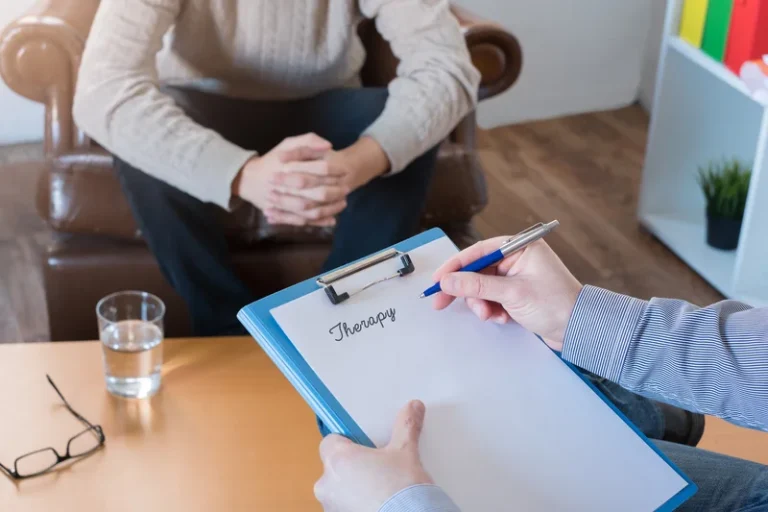
The safest and most effective way to treat ketamine withdrawal symptoms is through medical detox. While there isn’t a one-size-fits-all drug specifically tailored for ketamine withdrawal, certain medications can ease the journey. From managing sleep disturbances to tempering anxiety, prescribed drugs can address specific withdrawal symptoms, making the process more manageable. Increased sensitivities to stress, pain, and other stimuli can result in a wide range of physiological withdrawal symptoms as well as the psychological withdrawals that most ketamine abusers experience. Tolerance is the brain’s way of adapting to the altered effects of ketamine use.
- It is worth discussing both options with a healthcare professional before beginning detox.
- If you’re with others, you may lash out, behaving in an abusive and hurtful manner that yields side effects that last far beyond the detox period.
- Enter your phone number below to receive a free and confidential call from a treatment provider.
- While there isn’t a specific medication for ketamine withdrawal, there is a range of medications suitable for targeting individual symptoms.
Inpatient Rehabilitation Centers
A medically supervised detox can provide medications and supportive therapies to help ease withdrawal symptoms and minimize health risks. The initial detox phase often starts within hours after the last dose of ketamine. Detoxification, or detox, is a medically supervised process designed to remove all traces of a drug from your body, while helping you manage your withdrawal symptoms. Detox is an essential first step in overcoming ketamine addiction and should always be done in a controlled ketamine withdrawal symptoms environment and under medical supervision, to ensure your safety. This is because managing intense withdrawal symptoms without medical support can result in serious health complications, including dehydration, seizures and cardiac issues. Withdrawal symptoms are at their most intense in the first stage of detox, with many lingering to different degrees for several weeks.
- At Smarmore Castle, our treatment programmes start at four weeks but are flexible in length allowing you to extend this for a longer period if you feel you need it.
- Here are some answers to other common questions related to ketamine withdrawal and addiction recovery.
- Repeated exposure to ketamine causes the body to stop responding to the drug as it once did, leading the individual to use larger doses to achieve the desired effects.
- While it is normal to feel overwhelmed in the beginning, the good news is there is plenty of support available.
- You deserve the best possible shot at sobriety, and that means choosing a detox center that works for your needs.
Physical
Changes to neurotransmitters from ketamine abuse and the subsequent effects of removing the substance make the psychological side effects unpredictable and dangerous for some. For this reason, a high level of support during and after detox is essential for successful recovery. Treatment focuses on addressing past, present and future mental health considerations. The onset of withdrawal symptoms at the beginning of detox varies from person to person.
Ketamine Detox in a Nutshell
- Ketamine addiction recovery often entails managing withdrawal symptoms and cravings and creating healthier coping mechanisms.
- As a dissociative anaesthetic, many users take ketamine to experience calmness, and euphoria and enter a trance-like state.
- They must follow a rigid programme designed to maximise treatment efficacy while still living a relatively normal life.
- This identified 52 potential additional sources of which 6 were duplicates from the PubMed search and 17 were found to be relevant.
While it is normal to feel overwhelmed in the beginning, the good news is there is plenty of support available. You could speak with a local healthcare professional, such as your GP, who will be able to signpost you to relevant local services. This is often a less overwhelming first step, and such continued support has been proven to help minimise the risk of relapse. Our medically managed detoxes are supervised by our specialist medical team, who have years of experience helping patients through ketamine withdrawal.
The first signs of withdrawal often include strong cravings for ketamine, accompanied by feelings of anxiety or restlessness. Many of the effects of ketamine withdrawal are opposite the effects of ketamine intoxication and will run their course in few days. Ketamine withdrawals occur upon ceasing use of the drug and those who use it more often, in high amounts, with other substances, or via injection are likely to go through withdrawals that get worse each time. Many of the effects of ketamine withdrawal are opposite the effects of ketamine intoxication. Ketamine users may go through multiple periods of dependence and withdrawal, repeating the cycles more frequently as the drug begins to truly wreak its havoc in their brain and central nervous system. These results for the parent R-enantiomer are consistent with studies on R-ketamine metabolites, which have also been investigated for their antidepressant effects and safety properties.

Given the paucity of human trials of R-ketamine we included two open and one randomized trial, though their primary focus was depression and not SI 22,23,24. We followed the methodology of our previous systematic review 25, searching subsequent literature on “ketamine” and “suicide” to incorporate the latest research since 2020. We also looked at enantiomer-specific studies, and utilized RCTs with both primary and secondary outcomes for SI. We included post-hoc analyses of past RCTs and examined safety results from the included studies.

Individual Therapy and Group Counseling
Others found a significant anti-SI effect of racemic ketamine that persisted till Day 3 39, Day 5 43, 44, and Week 2 40. Ketamine has emerged as a promising and rapid-acting treatment for suicidal ideation (SI) 5,6,7. Ketamine is novel in its rapid onset of action and efficacy in Treatment-Resistant Depression (TRD) 8. Ketamine is a racemic mixture of two enantiomers — (S)-ketamine (esketamine) and (R)-ketamine (arketamine).
Mindfulness-based cognitive therapy drug addiction treatment (MBCT) combines mindfulness practices with cognitive behavioral strategies to help manage depression. The editorial team at therapist.com works with the world’s leading clinical experts to bring you accessible, insightful information about mental health topics and trends. Additionally, patients are unable to drive themselves home after KAP sessions due to the effects of the treatment.

Our residential treatment is the highest level of care that provides 24-hour care, monitoring, and supervision to patients in recovery from addiction. Treatment for ketamine dependency often involves therapy and support groups to help individuals understand why they started using ketamine and develop healthier coping mechanisms. It’s essential for anyone struggling with ketamine abuse and dependency to seek help from a healthcare professional to overcome their addiction and regain control of their life. At West Georgia Wellness Center, we understand the unique challenges posed by ketamine withdrawal and addiction. Our compassionate, personalized treatment approach ensures that each individual receives the care they need to navigate the withdrawal process successfully and achieve a healthier, more fulfilling life.
